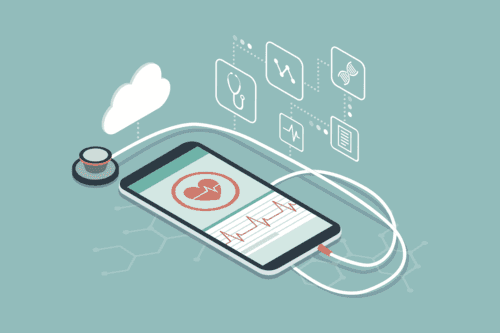Introduction
Healthcare is changing fast, and digital tools are at the heart of it. From remote monitoring to AI-powered diagnostics, technology is helping doctors and patients stay more connected, catch issues earlier, and keep care going even outside the hospital. It’s all about making healthcare more personal, more proactive, and better for everyone involved.
- Remote Patient Monitoring (RPM)
Remote patient monitoring involves the use of connected devices that track a patient’s health data, such as blood pressure, glucose levels, or heart rate in real time. These tools transmit data to healthcare providers, enabling timely interventions without the need for in-person visits.
Benefits:
- Early detection of complications
- Reduced hospital readmissions
- Enhanced chronic disease management (e.g., diabetes, hypertension)
- Empowered patients who can track and understand their health trends
- Digital Follow-Up and Telehealth
Post-treatment follow-ups can now be conducted via secure video calls or messaging platforms. This ensures continuity of care, especially for patients in remote areas or those with mobility issues.
Benefits:
- Increased access to specialists
- Lowered cost and time spent on travel
- Improved adherence to treatment plans
- Timely clarification of medication or symptom concerns
- Mobile Health Apps
Mobile apps provide patients with tools to manage medications, monitor symptoms, and receive health education. Many also offer daily reminders, progress tracking, and integration with wearable devices.
Benefits:
- Increased patient engagement
- Real-time feedback and alerts
- Personalized healthcare insights
- Better lifestyle and medication adherence
- Electronic Health Records (EHRs)
EHRs centralize patient information, making it accessible to authorized providers across departments and facilities. This ensures more coordinated and accurate care.
Benefits:
- Reduced duplication of tests
- Improved diagnostic accuracy
- Faster access to patient history
- Seamless communication among care teams
- Artificial Intelligence (AI) and Predictive Analytics
AI tools analyze large sets of health data to identify patterns, predict patient risks, and assist in clinical decision-making. Predictive analytics can flag high-risk patients for early intervention.
Benefits:
- Enhanced diagnostic support
- Personalized treatment recommendations
- Optimized resource allocation in hospitals
- Better outcomes through proactive care
- Patient Portals and Communication Platforms
Patient portals provide access to lab results, appointment scheduling, billing, and direct communication with providers. These platforms foster transparency and empower patients.
Benefits:
- Improved provider-patient communication
- Increased patient satisfaction
- Reduced administrative workload
- Easier access to personal health data
Conclusion
As healthcare continues to evolve, digital tools are no longer a luxury, they’re a necessity. From keeping patients connected with their doctors remotely to offering real-time insights that guide better decisions, these innovations are reshaping the care experience for the better. By embracing these technologies, healthcare providers can offer more personalized, efficient, and responsive care leading to healthier outcomes and happier patients. The future of patient care is digital, and the time to invest in it is now.
Afyabook Pro is designed to help healthcare providers do just that, bringing together tools like remote monitoring, digital follow-ups, and smart health records in one powerful platform. If you’re ready to transform how you deliver care and improve patient outcomes, take the next step with Afyabook Pro
